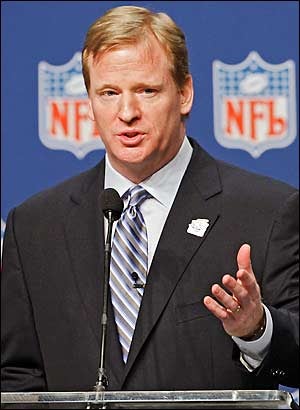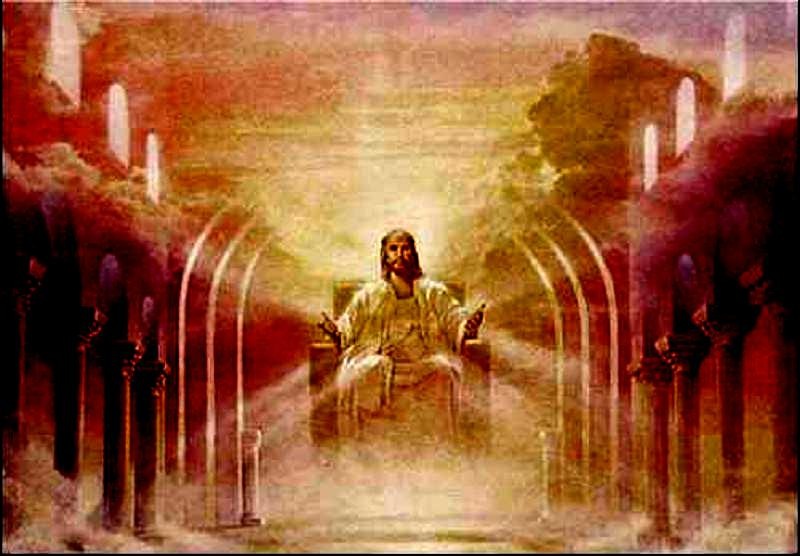Joshua 5:13-15
13And it came to pass, when Joshua was by Jericho, that he lifted up his eyes and looked, and, behold, there stood a man over against him with his sword drawn in his hand: and Joshua went unto him, and said unto him, Art thou for us, or for our adversaries?
14 And he said, Nay; but as captain of the host of the Lord am I now come. And Joshua fell on his face to the earth, and did worship, and said unto him, What saith my Lord unto his servant?
15 And the captain of the Lord's host said unto Joshua, Loose thy shoe from off thy foot; for the place whereon thou standest is holy. And Joshua did so.
Hebrews 2:9-10
9 But we see Jesus, who was made a little lower than the angels for the suffering of death, crowned with glory and honour; that he by the grace of God should taste death for every man.
10 For it became him, for whom are all things, and by whom are all things, in bringing many sons unto glory, to make the captain of their salvation perfect through sufferings.
In the book of Joshua, the Son of God made an Old Testament appearance to one of His people. This appearance is much like the Son of God’s appearance to Abraham in Genesis 18. There are several similarities between the two, and the first is how we know that it was indeed the Son of God appearing to Abraham and Joshua: the acceptance of worship. Both Abraham and Joshua fell on their faces before their visitor in reverence and worship, and the man did not tell them to stop. If it was simply an angel, the angel would have stopped the men from worshipping. In Joshua, the Son of God goes one step further in worship by telling Joshua to take of his shoes, a sign of humility and reverence to God. Secondly, in each of these passages, Christ appeared as a figure in both Abraham and Joshua’s occupations- Abraham was a traveler and Joshua was a soldier. Finally, the Son of God brings encouragement to both Abraham and Joshua. For Abraham, He brought the promise of a son who would eventually become the next in line of God’s chosen people. For Joshua, He brought the knowledge that God would fight for Israel.
This is often a confusing spot for Christians. In verse 13, Joshua asked who this man was fighting for- Israel or Israel’s enemies. But this man answered by saying that He was on neither side, but was rather the captain of God’s army. By coming with His sword drawn (v. 13) He is showing Joshua that He is coming to fight for Israel. God was going to fight this battle for them and He would lead them and fight for them as long as they stayed true to Him.
We now have a captain leading us and fighting for us. He is this same captain that appeared to Joshua, then led and fought for both him and Israel. But in order to receive the leadership of God and His power fighting for us, we must follow the example of Joshua.
1. We must worship and glorify Him (Joshua 5:14b; Psalm 72:11; Philippians 2:9-11).
Joshua 5:14b- “And Joshua fell on his face to the earth, and did worship…”
Psalm 72:11- “Yea, all kings shall fall down before Him: all nations shall serve Him.”
Philippians 2:9-11- “Wherefore God also hath highly exalted Him, and given Him a name which is above every name: That at the name of Jesus every knee should bow… And that every tongue should confess that Jesus Christ is Lord, to the glory of God the Father.”
In these passages, we see that every person in the world will one day give honor and glory to God the Father and His Son, Jesus Christ. Each person will do it, but it’s how they do it that makes the difference. Like Joshua, we can choose to willingly give Him the honor that He deserves. But even as Christians, we still may not give Him glory, but rather take it for ourselves. This is a dangerous place to be. One should never take glory away from the God of the universe.
2. We should always ask Him what He wants us to do (Joshua 5:14c; Acts 9:6).
Joshua 5:14c- “… and [Joshua] said unto Him, ‘What saith my Lord unto His servant?’”
Acts 9:6- “And he [Saul of Tarsus] trembling and astonished said, ‘Lord, what wilt thou have me to do?’ And the Lord said unto Him, ‘Arise, and go into the city, it shall be thee what thou must do.’”
Both of these verses show us men who have reached the end of their human resources. Joshua was facing the walls of Jericho, with no way to get through or over them. Saul was realizing that everything he believed about Jesus was not true and now looked to him for guidance. It is when we too reach this point where we can do nothing apart from God and look to Him for what He wants us to do that we can do truly great things.
3. We must follow His plan as He reveals it to us (Joshua 6; Acts 9:8-9, 17-22)
In Joshua 6, we see God’s plan for battle against Jericho given and carried out. Because the people of Israel obeyed God, He blessed them with a great victory. In Acts 9, Saul followed God’s orders and went to Damascus. There he received his sight back, a new name (Paul), and a mission from God. This mission is the same mission that we have: “Go ye into all the world, and preach the gospel to every creature.” When he followed this plan, this mission that God gave him, he lived a blessed life, a life that honors and glorifies God. In Romans 12:1-3, Paul writes to us on how we can know what God’s plan is for our lives.
1 I beseech you therefore, brethren, by the mercies of God, that ye present your bodies a living sacrifice, holy, acceptable unto God, which is your reasonable service.
2 And be not conformed to this world: but be ye transformed by the renewing of your mind, that ye may prove what is that good, and acceptable, and perfect, will of God.
3 For I say, through the grace given unto me, to every man that is among you, not to think of himself more highly than he ought to think; but to think soberly, according as God hath dealt to every man the measure of faith.
Paul is telling us that in order to know what God wants us to do, we must do 3 things. First, we must sacrifice ourselves and whatever we want. We need to give up ourselves and our plans and put Christ and His plans for us in control. Secondly, we must conform to His image. Saying that Christ is in control and His plans are what we want is easy. But doing it in the middle of this world is the hard part. We may not want to do it. But Paul writes in II Timothy 1:12, “For I know whom I have believed, and am persuaded that he is able to keep that which I have committed unto him against that day.” God is going to keep His promise of our proving His will if we follow Him. When we commit our way unto Him, He will keep it. Finally, we must remain humble. Paul himself may have even struggled with this. In II Corinthians, Paul said that “there was given to me a thorn in the flesh, the messenger of Satan to buffet me, lest I should be exalted above measure.” God wanted to remain in the forefront of Paul’s life. And because God was in control, Paul was able to say, “Most gladly therefore will I rather glory in my infirmities, that the power of Christ may rest upon me. Therefore I take pleasure in infirmities, in reproaches, in necessities, in persecutions, in distresses for Christ's sake: for when I am weak, then am I strong (II Corinthians 12:9-10).”
Stay tuned for the next post in this series when we look at Christ in the book of Judges as our Judge and Lawgiver. Until then, God Bless!!







